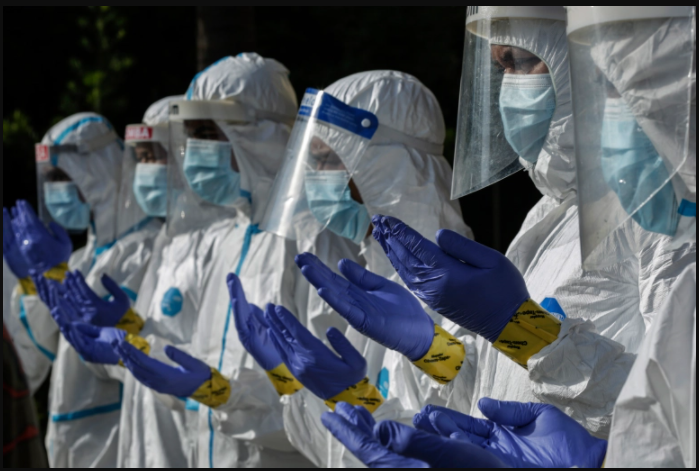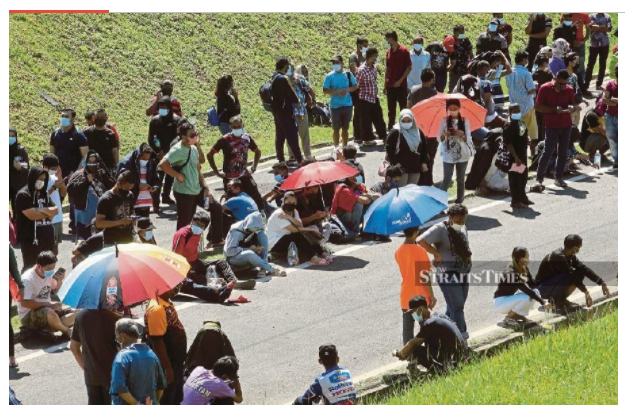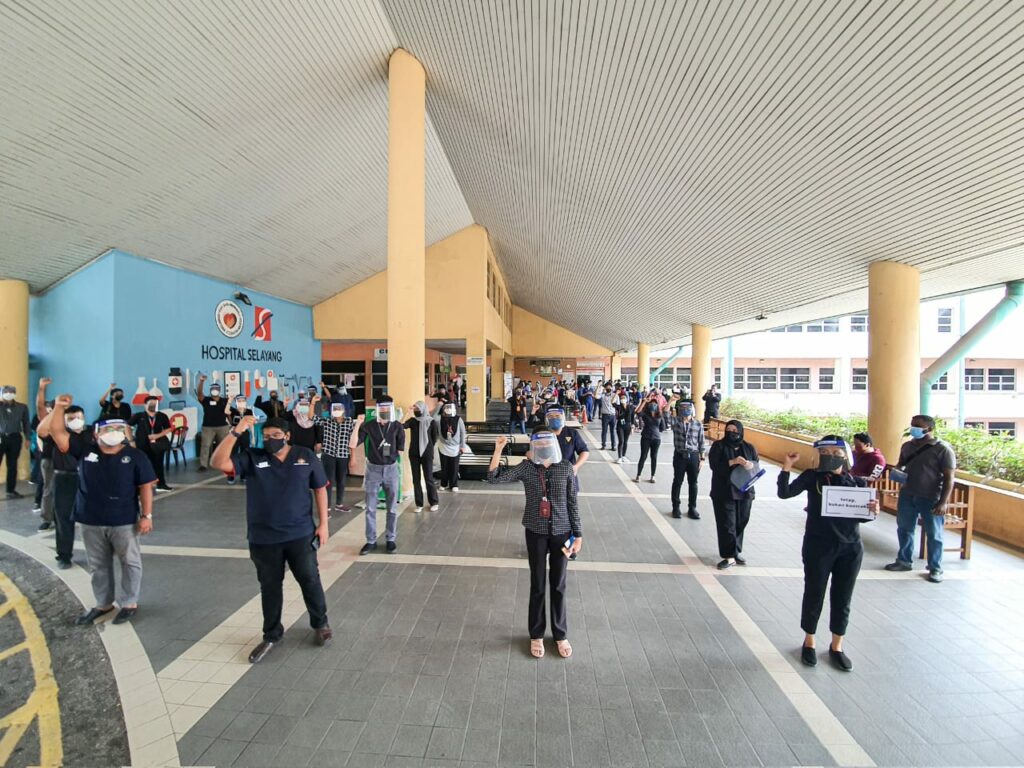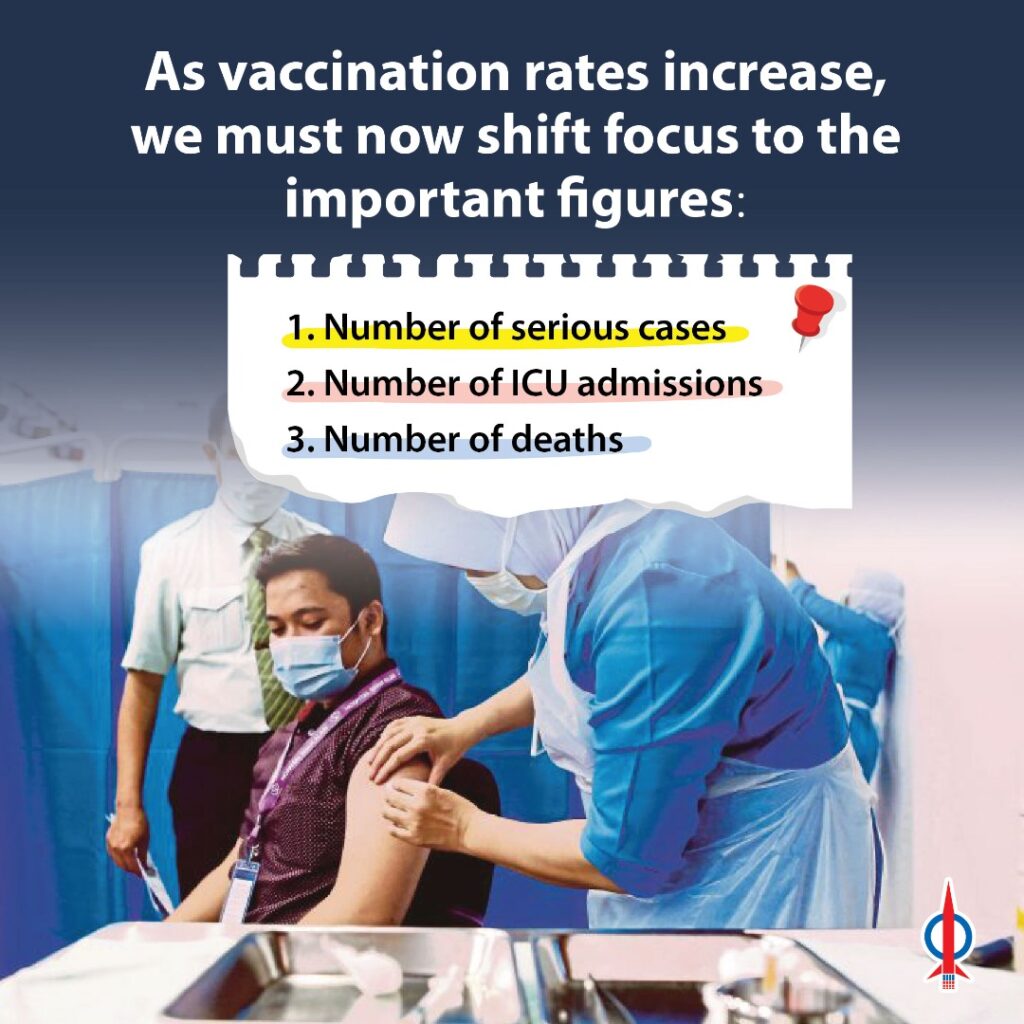
As Malaysia exceeds 1 million cumulative COVID-19 cases, we must abandon old strategies that clearly do not work and adopt better ones that will help us move towards a new normal.
The ‘new normal’ isn’t a future with perpetual lockdowns in their various forms. The ‘new normal’ is a future where Malaysians can go on with their daily lives with minimal impact from the pandemic and our economic activities have been invigorated by careful planning from the government. The virus isn’t going away anytime soon. It has evolved, so our strategies too must evolve in view of the long-term.
In lieu of the government’s failed lockdowns, DAP has detailed a comprehensive 21-page policy guideline, aligned with the global new aim of “living with Covid-19”.
Below is a brief summary of the strategies that DAP has put forward.
Controlling and mitigating the infections
It seems that almost every day we are breaking new records of daily cases as well as deaths. On the 26th of July, we reached an alarming 17,045 cases. Today we reached another heartbreaking record of 207 deaths in a single day, the highest ever in Malaysia.
Even with relatively low daily testing we are almost reaching a 10% positivity rate which is well above the 5% positivity rate threshold that is recommended by WHO.

The healthcare system has been stretched to its limit, with insufficient capacity forcing COVID-19 patients to be treated on the floor or in corridors of some hospitals.
We must adopt a stringent “Find, Test, Trace, Isolate, Support+Vaccination” (FTTIS+V) national strategy that essentially works to find and tests hotspots of COVID-19 outbreaks. Rapid isolation of cases and quarantine of close contacts through tracing is extremely critical.

There is also a need to manage constant overcrowding at Covid Assessment Centers (CACs). One of the steps to accomplishing this is to engage the expertise of frontline workers on how to run and man these centers.
The vaccination strategy themselves would need to be tweaked to ensure higher vaccination rates are achieved at a faster pace, for example, expanding walk in appointments, and creating a strong policy on how to vaccinate undocumented immigrants.
DAP also feels it is extremely important to identify and target vulnerable communities for testing and vaccination. Vulnerable communities such as prisoners, factory workers, and immigrants must be given special attention to curb the spread of the virus. Mobile vaccination centres should be engaged for such a purpose.
Readiness to meet future outbreaks
While containing the current cases of COVID-19 will always take precedence, there must be a plan of action to prepare for potential outbreaks that may be caused by new COVID-19 strains, tourism activities, or unvaccinated undocumented migrants in states with porous borders like Sabah.
Strengthening existing healthcare facilities must be a priority. There must be an increase in ICU hospital capacity, faster procurement and distribution of medical equipment and expanding the pool of frontline workers.

Special attention must be paid to the plight of our contract health officers and we must allow them permanent postings for those who require it. It is the health officers who are putting their lives on the line for the safety of Malaysians, and they deserve to offered equal benefits and clear career progression for their sacrifices. This will ensure the integrity of our healthcare system stays in tact.
Future outbreaks can be minimized with targeted testing and lockdown in high risk areas, as well as the introduction of more effective SOPs at workplaces in accordance to type of work being done.
Additionally, our Covid-19 data detection systems must be properly managed. We do not want to repeat the same mistakes that occurred with the HIDE system which suddenly caused the sudden closing of many retail outlets without any science based reasoning.

Other suggestions include improving resources between the federal, state and local governments and including the elected representatives as part of the strategy to control potential outbreak.
Therefore it is important that the federal provide funding to all MPs to help fight the COVID-19 pandemic for example to procure self testing kits for certain groups in the community, paying for COVID-19 tests in certain areas and providing food aid in areas with enhanced lockdowns.
Opening up the social and economic sectors with safety catches
Recently, Malaysia plummeted in the “2021 Bloomberg Covid Resilience Ranking” for the month of June – ranking 51st position out of 53 countries that were studied. Shockingly, Malaysia was ranked 16th on the same scale in January. The drop was contributed to the fact that our country seems nowhere near returning to a sense of normalcy the other way other countries have managed to.

As more people get vaccinated, it is important to shift the focus on the numbers that will reflect the strain on the healthcare system. We must look at the percentage of serious COVID-19 cases (Categories 3 to 5) and the number of deaths along with those admitted in the ICU.
There must also be a “smarter” way of reopening the economy, for example allowing certain sectors to reopen with the implementation of strict SOPs or based on the vaccination rate of their staff.
This could also encompass loosening the restrictions on Malaysians to travel abroad especially for fully vaccinated residents to travel to low-risk countries such as Singapore and Australia.
Other recommendations include opening up of certain sectors with incentives, and bold fiscal measures to invigorate the economy.
DAP is calling for a RM45 billion recovery and stimulus plan which would allocate at least RM4 billion to the Ministry of Health, RM30 billion in financial grants and subsidies, RM6 billion in hiring incentives and RM5 billion for households.

However, we must keep in mind that none of these proposals can be pulled off successfully if the country does not engage a “whole of society, all of government” approach to fighting the pandemic.
Medium term strategies on dealing with Covid-19
A responsible government must plan ahead to manage the pandemic beyond this current year and to change the strategies as more information on the virus becomes available.
From our current understanding of the pandemic, we must prepare infrastructure and policies for mass inoculation of the adult population with COVID-19 vaccines along with booster shots.

There must also be comprehensive studies done to monitor the impact of Long Covid. Long Covid—a term referring to symptoms that linger for weeks or months beyond infection—affects between 10% and 30% of people who catch the virus.
Finally, the government must be able to release some control and decentralize management of COVID-19 to the respective state governments who should make decisions with the help of experts. A more flexible approach to dealing with future health pandemics is needed in order to cater for the different circumstances which exist in each state.
If we plan carefully and strategically, the country can emerge stronger and better than before having ‘build back Malaysia better’.
Read the full proposal here
The Rocket



